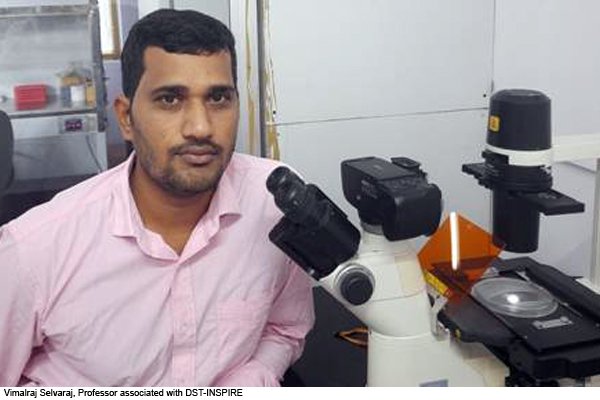New Delhi: Our scientists are exploring the possibility of an alternative anti-cancer therapy in which the structure of new tumor-causing blood vessels, which deliver oxygen and nutrients to the body’s tissues, is technically called angiogenesis. Is included.

Angiogenesis plays an important role in the growth of cancer because the tumor needs a blood supply to grow in size. Tumors actually trigger the growth of blood cells by turning off chemical signals that stimulate angiogenesis. The main reason for the increase in tumor size and its severity is the decrease in the regulation of angiogenesis.
Preventing tumor angiogenesis after chemotherapy has become a popular anti-cancer strategy. Although clinically approved, angiogenic – anticonvulsants prove ineffective due to their simultaneous activation of various compensatory processes involving the flow of molecules that aid tumor angiogenesis and to develop angiogenic – antidiabetic Examination of these processes is necessary.
Dr. Vimalraj Selvaraj, associated with the Center of Biotechnology, Anna University, Chennai, has received an Inspire Faculty Fellowship established by the Department of Science and Technology, Government of India, discovering the role of indicators indicating compensatory angiogenesis as the prime target of cancer therapy are doing.
They have already ascertained the fact that nitric oxide (NO) under the tumor microenvironment plays a key role in shutting down angiogenesis and that the melatonin hormone suppresses tumor angiogenesis. Research journals like Microvascular Research, Life Sciences, and Nitric Oxide Research published in the study have suggested that compensatory procedures may be a potential therapeutic target in the development of effective anti-cancer treatments.
Dr. Vimalraj and his research team developed transgenic zebrafish (whose exogenous genes have been added to the genome) using CRISPR / CAS9 gene-editing tools to further study the compensatory angiogenesis processes in the tumor microenvironment with the help of the Inspire Faculty Program Differential expression of biomolecules between two types of angiogenesis (sprouting angiogenesis and intussusceptive angiogenesis) and their molecular processes will be analyzed using a transgenic zebrafish model in the tumor microenvironment.
In the next phase of this project, the transgenic or CRISPR / CAS9 edited zebrafish platform (TZP) can be used to study the effectiveness of a drug as an anti or pro-angiogenesis.
The transgenic zebrafish model has been selected for intussusceptive angiogenesis studies due to its rapid development, being visually transparent, high yield in descendants, and easy techniques for forward and reverse gene manipulation. The next phase of this project involves anti or pro-angiogenesis The CRISPR / CAS9 edited zebrafish platform will also be used to study the effectiveness of a drug in the form of.
